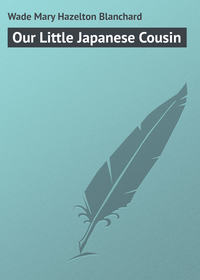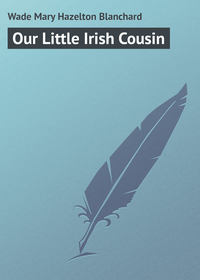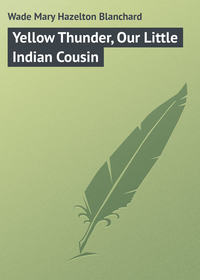 полная версия
полная версияAlila, Our Little Philippine Cousin
Alila looked at the hunter with envy, for he knew how dangerous his work had been. Among many people in the East, no food is thought so great a dainty as these edible birds' nests. What queer tastes they have! At least it seems so to us.
There is a certain kind of bird that makes its nest high up on the sides of steep cliffs jutting out over the waters of the ocean. These nests are like no others. The birds that build them swallow a certain kind of glutinous weed growing on the coral rocks. They then cough it up and use this material they have so oddly prepared in making their nests.
Whenever a man makes it his business to search for these nests, he knows the danger full well. Slowly and painfully he must climb the sides of the cliffs, often placing his feet where we should think there was no foothold whatever. He clutches at a sharp point of rock here, or a twig there; but if it is not as safe as he believed, woe unto him! For down he falls into the raging waters below and is a lucky man if he is not dashed to pieces on the sharp rocks. Again, he may grow faint and dizzy when he has climbed only a part of the way, or he may lose his hold from very weakness.
The Chinese are as fond of these edible birds' nests as are the Filipinos. Perhaps you have heard of the great Chinese viceroy, Li Hung Chang, who came to visit us several years ago. He brought his own cooks and a large supply of birds' nests and sharks' fins.
Alila joined the hunter on his way to the planter's mansion. The boy wished to have a chance to see the grand lady, the planter's wife, and their little daughter, who plays so beautifully on the harp.
They soon reached the house, which seemed very large beside Alila's little cabin. It was two stories high. The lower part was of stone and the upper half of wood. It would not have been safe to use stone above the lower floor on account of the frequent earthquakes.
The roof was thatched with cogon grass. When it was built the planter said to himself: "I will not have an iron roof like many of the city houses; it would be too hot. I like the grass thatching much better."
Beautiful gardens where roses were always in bloom surrounded the house. Bright-coloured birds flew about among the bushes, but they had no songs for Alila and the hunter as they passed along. The broad veranda was shaded by a clump of tall banana-trees, swaying to and fro in the gentle breeze. How noble they looked, with their tufts of glossy leaves at the very top, lapping over each other and shutting out the sun's hot rays!
As Alila glanced up to see if the fruit was ripening the hunter said:
"Did you ever hear the stories told of the banana? Some say it is the very fruit that tempted Eve in the Garden of Eden, while others think that she and Adam made their first clothing of banana leaves."
"I wonder if that can be so," said the little boy, thoughtfully. "Any way, I'm glad there is fresh fruit every month in the year; I like bananas so much."
They reached the house as he finished speaking. The planter and his wife were sitting alone on the veranda. Alila was disappointed in not seeing their little daughter.
While the hunter was attending to his business with the planter, the boy's bright eyes noted the lady's dress.
"I must tell mother all about it," he said to himself. "She will want to know. My, what a long train she wears! It is so thin and delicate I think it must be woven of pineapple fibre. What beautiful bright colours it has!
"And how stiff her kerchief is! It stands up so high at the back of her neck I should think it would feel very uncomfortable. Her chemisette is very pretty, my mother would think. What wide sleeves! Still they are short, so she can keep cool."
But the jewels! Alila had never seen so many before. The lady fairly sparkled, with her gold earrings and bracelets, set with precious stones. Surely there was going to be a party at the big house, or she would not be dressed so finely.
Just as the boy was thinking this, the planter's wife turned her head toward him and spoke.
"Alila, is it not time to tap the cocoanut-trees? Tell your father I want some tuba as soon as possible. You are now such a big boy, I suppose you will be able to help him get it."
The little fellow made a low bow and answered that his father had spoken about it that very morning and had promised that he should help him. Perhaps you remember that when Alila was christened there was a good supply of tuba at the feast. Did you wonder what it could be?
On the sugar farm there is a clump of cocoanut-trees on which no fruit ever grows. Why is this? Because all the sap which would be used by Mother Nature in making blossoms and changing these into cocoanuts is used for another purpose. It is drawn from the tree at a certain time of the year to make a drink much loved by the natives.
Tapping the trees for tuba is dangerous work, but Alila, you know, loves danger. He went home from the planter's mansion very happy, for now he should have an errand there every day during the next few weeks. For must he not bring the family a fresh bamboo of tuba each night and morning?
CHAPTER VIII.
TAPPING FOR TUBA
Alila was wide awake before sunrise of the next day. He did not lie on his mat lazily watching to see if a lizard or newt should creep out of a corner, as he often did on other mornings. It was only the day before that he pulled a newt by its tail just to see if the tail would really come off in his hand. It did, for a fact! and away Mr. Newt scuttled without any tail.
Wasn't it a little cruel and ungrateful in Alila, when he knew how much the newts as well as the lizards do to let him sleep comfortably? They destroy ants and spiders and other creeping things, so that Alila's mother never kills them nor drives them away.
Neither did Alila stop to play with his pet cat this morning – such an odd cat, too, with a queer little twist in her tail like that of a pug dog. Alila was dressed before his father waked.
While waiting, he went out into the yard to sharpen his knife. But he had no whetstone. There are more ways than one of doing things, we have already discovered. The boy took a piece of wood and covered it with a paste made of ashes and oil. Then he rubbed the blade of his knife back and forth over this till the edge was sharp enough to split a hair with ease.
Next he got together some vessels of bamboo and two long bamboo rods. He was just a little bit nervous, although it was not in his nature to be easily excited. He said to himself:
"Oh, dear, I hope I shall not have to wait much longer."
At this very moment he looked up and there was his kind, quiet father standing in the doorway.
"All ready!" And the two started for the cocoanut grove not far away.
As soon as they reached the place, Alila took out his sharp knife. Work began at once, for notches must be cut in the tree, one above another, in which to place his toes. As one notch was made, the boy drew himself high enough to get a foothold in it; then, reaching up, he cut the next one and drew himself up to that, and so on until he had reached the top, fully sixty feet above the ground. A cocoanut-tree, as you probably remember, has no branches whatever to give any help to a person in climbing.
And now Alila came down again. He did it so easily and gracefully, it was a pleasure to watch him. As soon as he was within reach, his father handed him vessels of bamboo, which the boy fastened to his waist and again climbed the tree. One might almost say he was as nimble as a squirrel, yet that does not express the long, graceful movements of his body as he rose far from the ground.
When he was once more at the top of the tree, he made deep cuts in the trunk directly under the great tuft of leaves, and hung his bamboo vessels so the sap could flow into them.
Now for the same work in the next tree. Do you think he must go down to the ground again and go through all the work he had in climbing the first tree? Not at all. His father reached up to him two long bamboo rods. He took the first one and stretched it across to the next tree. This would serve as a bridge over which he could walk. The second one was placed above the first and would make a good hand-rail.
Alila did not think of the danger of a walk in mid-air on such a slender support. His head was cool, his feet were firm, his body light, and he passed from one tree to another in perfect safety. He was happy as a king to be trusted by his father to take such a risk.
Think of a fall from a height like that! Suppose for one instant that the bamboo should give way under the boy's feet or failed to hold in the tree-top! That would have ended our little Alila's life in a moment, or at least made him a cripple for the rest of his days.
The fact is, however, that the boy had no accident, and every day afterward, as long as the sap continued to flow, he went out to the cocoanut grove, collected the tuba, and carried a good supply of it to the planter's mansion.
CHAPTER IX.
FOREST AND STREAM
There is another cocoanut grove on the farm, beside the one where Alila gets the tuba. The fruit is allowed to ripen on these trees, and it is the boy's duty to gather it. There is a new growth of cocoanuts three times a year.
Alila does not need to climb the trees for them unless he wishes. He usually fastens a sickle-shaped knife to the end of a long pole. In this way he can reach up to the tops of the tallest trees and cut off the cocoanuts; when thud! thud! down they fall to the ground, safe and sound. For the delicious pulp is not only shut up in the hard shell that we know, but this also is enclosed in a still larger and thicker covering.
How could the natives of tropic lands get along without this valuable tree? It has so many uses it would take a long time even to mention them all.
Its roots are good to cure Alila when he is seized by an attack of fever during the wet season. His mother believes that his life has been spared through the use of this medicine. Alila's father made his canoe from the trunk of a cocoanut-tree; while much of the furniture in his employer's mansion has been carved from its beautiful wood. The boy's mother uses a comb made from the stalks of cocoanut leaves. The husks which enclose the fruit are made into coir, out of which are made ropes, brooms, brushes, and even bedding.
When Alila was only five or six years old he learned to weave baskets and mats from the leaves, and he knows how to thatch a roof with them very neatly.
What is so delicious on a hot day as a drink of fresh cocoanut milk! It is never hurtful and quenches the thirst as well as the coldest water. The oil obtained from the nuts is used by Alila's mother in her cooking.
But she also needs it for another purpose. She is always in fear of an earthquake, and feels safer to have a light burning in readiness all night long. She keeps in the cabin a small vessel half-full of water. Cocoanut oil is poured on the water and a wick made of a certain kind of pith called tinsin hangs down in the middle of this odd lamp. The Chinese taught the Tagals the value of tinsin. There is scarcely to be found a native hut where it is not used for lamp wicks.
But you must be tired of hearing about cocoanuts and their uses, so we will return to Alila and his strange adventures. One day not long ago his mother said to him:
"My child, I should like some fish for dinner. Will you go to the river and get some?"
Alila has great success in fishing. He started off at once on his errand. He did not stop to get hook and line, as you would have done; he knew another way to fish, different from any we have in our country.
When he got to the river he walked along by its side till he found a place where the water ran very deep. Then he took off his clothing, and lay quietly down on the bank. His eyes were wide open and watchful, though his body was so still. He soon saw some fish rise near the surface of the water. Quick as a flash he jumped in and dived down, down under where the fish were darting. Rising as suddenly as he had dived, he came to the surface with a fish in each hand.
He is such a nimble little fellow that he did this several times, and hardly ever failed. It was not long before he had a fine string of fish to carry home. As he walked back, he stopped to gather some green bamboos of medium size, for he knew they would be needed in cooking the dinner.
While his mother was cleaning the fish, Alila made a fire and cut the bamboos at every joint. They were changed at once into baking pans, each one large enough to slip a fish inside, together with a little water and some spices. The ends were stopped up, and the bamboos laid in the fire. As soon as they began to burn, it was a sign that the fish inside were cooked enough.
What a good dinner it was! You would have thought so if you could have tasted the rice steamed in the same way as the delicate fish and served on plantain leaves.
Alila has still another way of fishing which is not as hard work as diving, though, after all, it is not much fun. He carries a bamboo basket in which he has put a mixture containing a curious kind of poison. He sets it floating on the water. When the fish come near it the poison makes them stupid, and they rise and float motionless on the surface, as though they were dead. Then it is an easy matter for Alila to get them.
CHAPTER X.
A SWARM OF LOCUSTS
The little brown boy has lived, as you know, on a sugar plantation, where the cane ripens only once a year. You also remember that last summer a hurricane destroyed the boy's home, and a new one had to be built. The sugar crop barely escaped ruin, when, alas! another danger came to it, more fearful even than the great wind. It was a storm of locusts.
Alila was working in the cane-fields with his loved buffalo one morning, when, looking up suddenly, he saw something which frightened him. It was a long distance away, far as his eyes could see, and it appeared like a dark cloud near the earth.
The boy was frightened, as I have said, but it was not for himself. It was on account of the danger threatening the plantation; he knew very well that what seemed like a cloud was composed of millions and millions of locusts. Unless something were done at once, all the sugar-cane would be ruined. For, if that army of insects, perfectly harmless to animals, should settle down upon the canes, the leaves would be entirely eaten in a few hours.
Alila ran as fast as his legs could carry him from one part of the plantation to another, and gave the alarm to the working people as he passed along.
It was wonderful how quickly men, women, and children armed themselves to meet the coming enemy. All the bamboo clappers, cocoanut shells, tin pans, and red flags that could be found were seized and put into use.
Then such a din and commotion you never heard nor saw, even on the glorious Fourth of July. Locusts are very sensitive to noise, so between the beating of drums and clappers, the waving of the red flags, and the smoke from fires of wet wood at the sides of the fields, the greater part of the army passed on. The people breathed again, since the danger was over for the present.
When it was all over Alila was not too tired to play for awhile with a few locusts he had caught in a net. Their bodies looked like those of large grasshoppers, except that they were of a brownish colour.
They would not sting or bite, and the boy kept his new pets as long as they lived. That was only a few days, however, as a locust has a very short life. It is said that food passes through its body as fast as it is eaten, so it is not nourished, and soon dies for this reason. It also has an enemy, a small worm that forms in its body and gradually eats it up.
The mother locust has a queer way of making a nest for her eggs. She extends the end of her body till it is like an auger, and with this she bores a deep hole in the earth. She chooses spots near fields of ripening rice or sugar cane, so the young locusts, as they hatch out, will be near a good supply of food; for at first they have no wings and cannot go in search of it.
After the visit of the locusts, Alila went carefully around the edges of the fields with the other workmen. They wished to see if any signs of young locusts could be found. But they found none and felt that the crops were free from danger for this year, at least. But Alila's father said to himself:
"How many risks there are in working on a sugar plantation! I have been here now many years. I never know whether the crop will be a failure or not. I believe I will go somewhere else. Up on the side of the mountain, not far from here, is a large hemp plantation; I will seek work there. Besides, there is fine hunting near by and Alila can see new sights."
When he told his family, they were all pleased, for Tagals dearly love a change and often move from place to place merely for the sake of change. Alila was the most delighted of all. He said:
"Now, father, I can hunt with you and go bat shooting in the deep forests. You know I can sell their beautiful soft skins to travellers."
Alila's grandmother and mother were pleased, too. They liked the idea because the hemp is gathered throughout the year and can be sold from time to time, whenever there is need of money. But when the women thought of the bands of brigands who hide in the mountain passes, they began to fear.
Many were the stories they had heard of these robbers and their sudden attacks in the night-time on people in lonely houses.
"You need not worry," said Alila's father, "for these wild robbers seldom harm poor people; and they never kill unless they are obliged to do so. I believe they are not as terrible as they are often described."
CHAPTER XI.
THE NEW HOME
So it came to pass that Alila went to a new home. It was not hard work to get ready, for there was little to move. The old buffalo that had grown up with his young master was able to carry on his broad back everything owned by the entire family. He could easily have taken more, too!
The women rode on ponies and the men walked beside the buffalo. No one seemed to feel sad, although it had been an easy, happy life on the little farm and the sugar planter had always been kind.
Their fellow workmen were Tagals like themselves; they would find many Chinese labourers on the hemp plantation, at least they had been told so. But they did not care for that.
There are many Chinamen in the Philippines, and they agree very well with their Tagal neighbours and the people of the many other tribes. Alila has a cousin married to a Chinese merchant in Manila and some time he is going to visit her.
As they journeyed onward they passed a party of Americans. Alila's mother called:
"Come nearer to me, my child. Stay by my side."
She had a fear of white faces of which she could not rid herself. The Spaniards had been cruel to her people, she well knew. And now that these others from far-away lands had taken the power from the Spaniards, she felt that they, too, would be hard and unkind.
Poor ignorant mother! She did not understand that it meant such different things, – schools for all children instead of a very few; work for any one who desired it; better care for the sick in the cities; fewer taxes for all. Yes, all these and many other good things would be done by the Americans to make Alila and Alila's children live more wisely and therefore more happily.
When the sun was setting that night, the hemp plantation could be plainly seen. It was a beautiful sight, those rows of small trees with their large, glossy leaves, shut in by woods of a larger growth.
The plant from which is made what is called Manila hemp belongs to the same family as the banana and the plantain. The leaves all of them look so much alike it would be hard for us to tell the difference.
It did not take many days to get settled. The neighbours were very kind and gave the family shelter and food until Alila and his father had finished building a cabin. This time they made the roof as well as the sides of the hut of split bamboo, and the boy's mother and grandmother helped in preparing it.
Alila had never before seen hemp gathered, and he had much to learn. He was soon very quick in separating the fibres from the pulp and spreading them out to dry before packing.
The boy sometimes wonders what journeys the bales of hemp will take. To what countries will they sail? To what uses will they be put? His father has told him that nothing else in his island home is shipped in such quantities as Manila hemp. It makes stout cordage and sail-cloth; it is woven into mats, carpets, and hammocks; while the finest hemp is made into delicate dress goods for the rich ladies of the island.
Yes, people all over the world have heard of Manila hemp, and when he is older, Alila says he will bear it company and seek strange sights across the oceans.
He had lived in his new home but a short time when he had an exciting adventure. Not far from the farm there is a dense forest. One night Alila's father said to his friends:
"Let us go on a hunt for wild boars. There must be plenty of boars and deer, too, in those woods."
The other men were ready for a little sport. They had been hunting in the forest many times before, and knew the best course to take.
"May I go with you, too?" whispered Alila, who was listening at his father's side.
When all agreed that it would make no trouble to allow the boy to go with them, since he was brave and strong, he was greatly pleased. They would be gone several days. What new, strange creatures should he see? What dangers should he meet?
CHAPTER XII.
IN THE FOREST
The party started out early the next morning. They carried very little food with them; it would only be in their way when hunting, and they trusted Mother Nature would supply what they needed as they went along. Two of the men had guns; the others carried bows and arrows. Every one was also supplied with a sharp spear and knife.
The first day was very quiet. Nothing was shot but a few birds and bats. When night came they found themselves far from any stream; all were thirsty and there was no water. What should they do? Ah! in plain sight was a liana. It is called the "travellers' drink" because any one, on breaking off a stalk, can obtain a cool draught. How refreshing it was!
A fire was quickly made and the birds cooked for supper. They all lay down to sleep. But, alas! that was not an easy thing to get. They had no sooner stretched themselves by the fire than they were attacked. By wild animals, you think at once. By no means. It was a small enemy, fierce for their blood, which darted out from the grass and fastened upon their bodies.
Multitudes of leeches have their home in the mountain forests of the Philippines, and every native who travels there is armed with a small rattan knife to cut them off as they seize upon him.
Alila's party knew that sleep was out of the question for this night. As fast as our little brown brother was able to cut off one of the bloodthirsty creatures, another took its place, till at last the daylight came and the hunters could go on their way.
But what a wretched sight they were! Blood streamed from their arms and legs, and they looked like the wounded survivors of a terrible battle. When they came to a spring of water, they were glad enough to have a chance to bathe.
Alila can tell you that was the worst night he ever passed in his life, yet he hardly spoke a word of complaint through the long hours, and in the morning laughed gaily with his friends when they gazed at each other's sorry-looking faces.
Small creatures can make themselves as troublesome as big ones. Perhaps you have already found this out when mosquitoes have found their way to your bedside and waked you in the middle of the night.
After a hasty breakfast, the hunters were ready for a tramp, and they soon found the tracks of wild boars. It was not long till they had killed three of them with little trouble. They were about to make a fire and roast some of the flesh for dinner, when a pitiful cry was heard.
How it rang out through the forest! It sounded almost human. What could it be? Alila's father jumped up and crept through the woods in the direction of the sound. His boy followed close at his heels. They had gone but a short distance when a strange sight met their eyes. High up on the branch of a tree lay a huge boa-constrictor. He must have been a hundred years old, he was so large.









